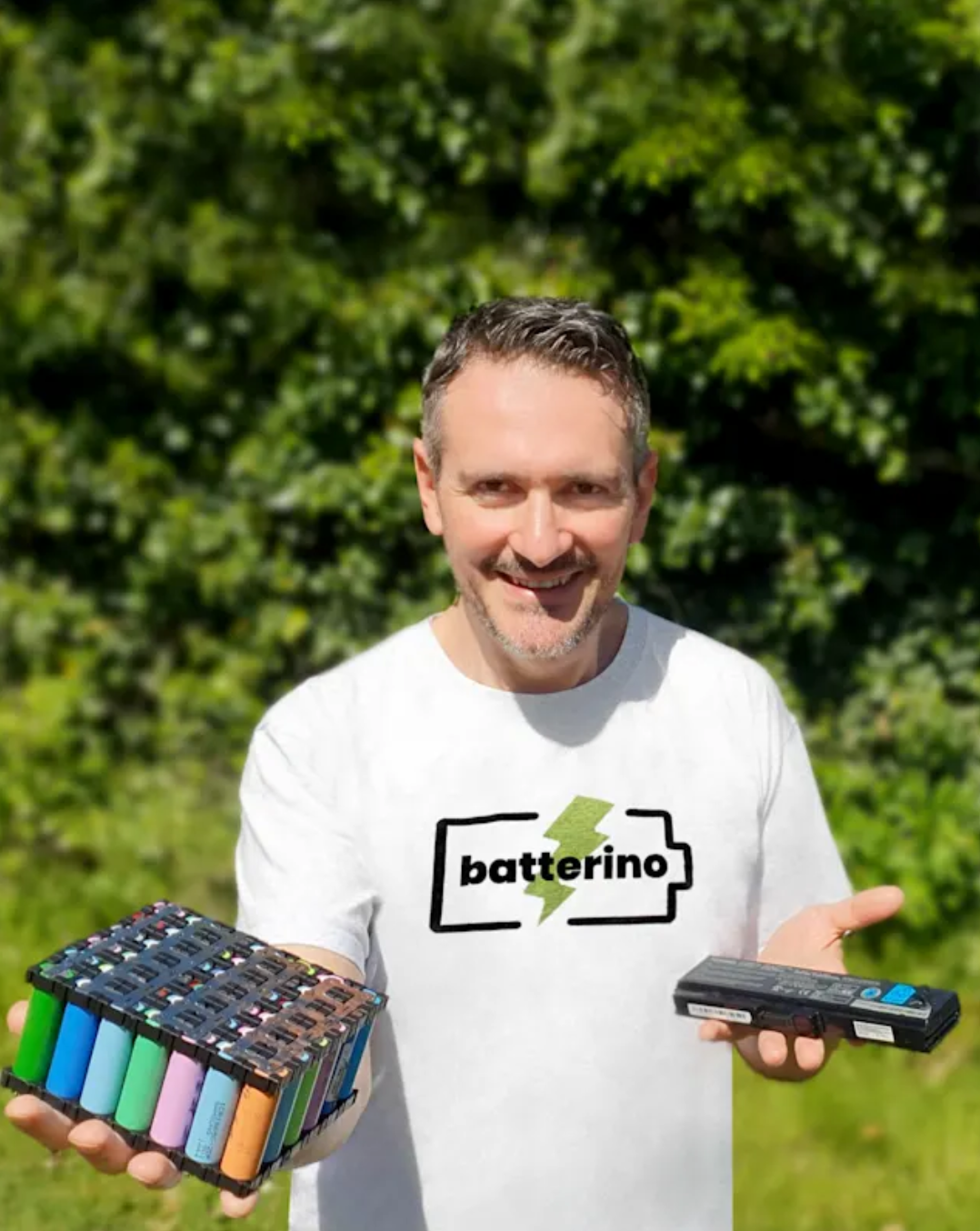London, UK – The basic philosophy of reusing expended batteries is hardly revolutionary. Demand for new batteries is high. The environmental impacts of letting used batteries slowly decompose in the landfill are unpleasant and unsustainable. As always, the devil is in the details. It is only recently that motivated entrepreneurs have begun to seriously look at reuse as an alternative to recycling. Leading the pack is London-based start-up Batterino.com. “During the UK coronavirus lockdown, we have seen a surge in demands for ebike batteries, as people have been avoiding public transport in favour of bikes and e-bikes”, writes founder Frank Vitetta”, “The demand for ebike batteries can only go up and at Batterino, we see reuse and repurpose as a real contender to expensive battery recycling.”
Advances in technology and an increased emphasis on environmental stewardship have resulted in traditional Lead-Acid batteries being rapidly phased out in favour of Lithium-Ion alternatives. While these Lithium batteries do not contain banned metals or the unhealthy acids found in the old-fashioned lead batteries, Lithium itself can be harmful if simply thrown away, as it is both highly flammable (leading potentially to toxic landfill fires) and linked to health problems including birth defects and brain damage.
Battery recycling programs can and have been effective at removing some batteries from the waste stream, but the process is expensive and not always economically viable. Vitetta puts it this way: “In Lithium-Ion batteries the retrieved raw material lithium cobalt oxide barely pays for collection, transport, sorting into batteries chemistries, shredding, separation of metallic and non-metallic materials, neutralizing hazardous substances, smelting, and purification of the recovered metals.”
What is often overlooked in this process is the simple fact that many of these batteries are discarded not because they have exhausted their functionality, but because the devices that use them have broken or become obsolete. Many batteries are discarded with as much as 70% of their capacity still intact.
This is where start-ups like Batterino see their niche. “We are currently developing smart battery management systems or BMS to prolong the life of rescued batteries,” says Vitetta. “Adding a microcomputer to a battery can significantly improve its capacity making repurposing as a real contender to battery recycling.” His company has partnered with recycling facilities around the London area to gather discarded electronic waste in order to “extract and reuse forgotten batteries.” His primary targets are the batteries inside discarded laptops and cordless power tools, which he, in turn, adapts into energy storage devices and power sources for the ever-expanding fleet of e-bikes, mobility scooters and similar devices.
Frank Vitetta’s winding path to his current obsession began in the computer sciences, where he distinguished himself by winning multiple hackathons before launching enterprises in IT, hospitality, furniture and marketing. It’s a disparate lifetime of experience that has taught him much of how to harness creative, original thinking to tackle problems of all sorts and to find unexpected opportunities during challenging problems.
Meeting the need for affordable and readily available batteries sustainably promises to be just such a challenge. While governmental regulation can do much to reduce wastefulness and protect the common good, ultimately entrepreneurship and economic need are the primary drivers of lasting change, and in that regard visionary start-ups like his can be the source of great optimism.
More information about Vitetta’s repurposed batteries and their applications can be found at Batterino.com
Media Contact
Company Name: Batterino
Contact Person: Frank Vitetta
Email: Send Email
Phone: 07884 461274
Address:27 Old Gloucester Street
City: London, WC1N 3AX
Country: United Kingdom
Website: www.Batterino.com

